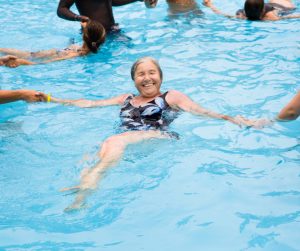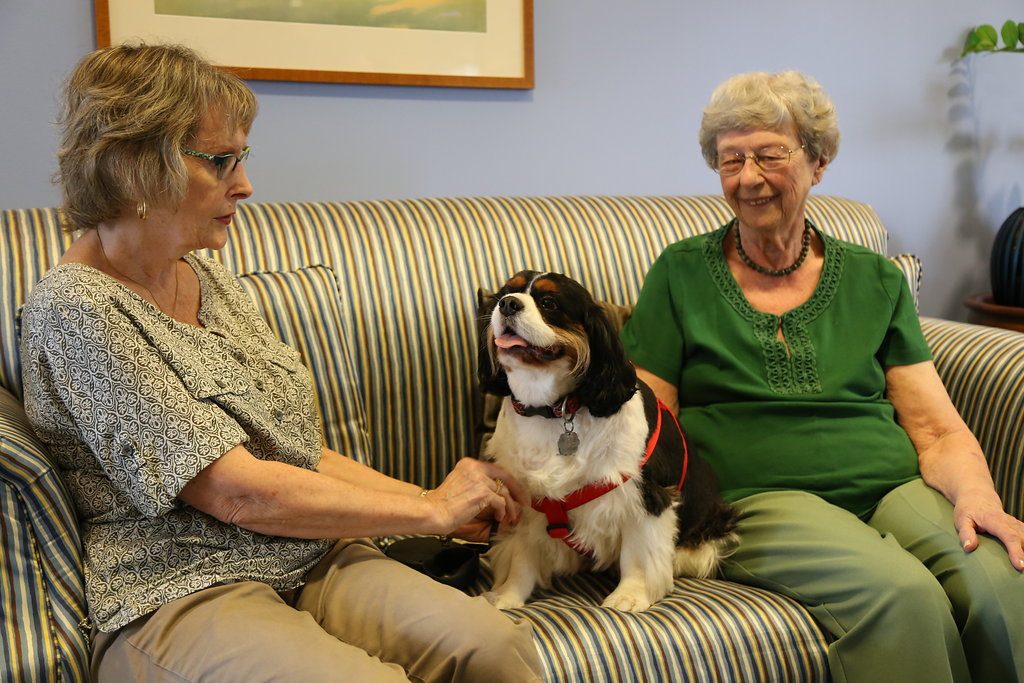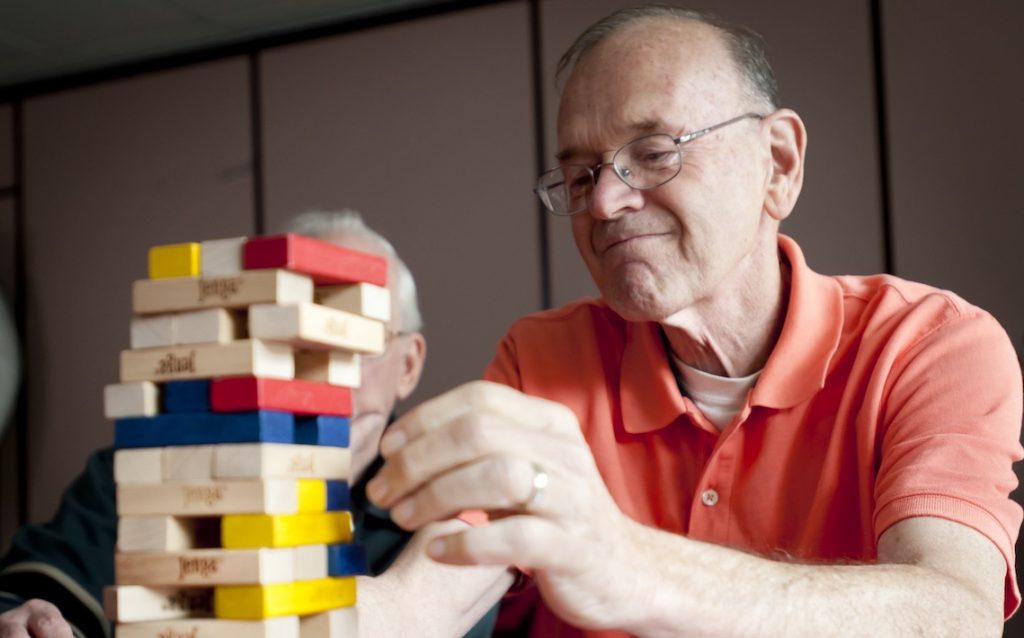 WHEN Mary Carol Pochebit began experiencing increasingly severe medical and mobility issues, she and her husband, John, faced a difficult choice. They wanted to stay together in the home they had shared for over 50 years. But Mary Carol needed more assistance with the activities of daily living than John could provide, and more acute medical care than she was eligible for at home.
WHEN Mary Carol Pochebit began experiencing increasingly severe medical and mobility issues, she and her husband, John, faced a difficult choice. They wanted to stay together in the home they had shared for over 50 years. But Mary Carol needed more assistance with the activities of daily living than John could provide, and more acute medical care than she was eligible for at home.
“We have a big, close family,” John explains. “But only one of my sons lives close by. I couldn’t even get Mary to her doctor appointments without calling him.”
Like many seniors, the Pochebits had many apprehensions and misconceptions about nursing homes like The Skilled Care Center at The Cedars. Today, they are so glad they didn’t let those fears keep them from finding Mary the care she needed. Because Mary had a customized care plan from our medical director, 24/7 support from our nursing team, and access to state-of-the-art physical and occupational therapy, she is walking again. She is thriving again. And she is back home again.
That’s right—Mary’s health improved so much in long term care that she was able to return home to John and her beloved dog, Barley. “It was the therapy and the nurses that did it,” she says happily. “And Dr. Marino—Dr. Marino saved my life.”
Dr. Marino, of Maine Medical Geriatrics, creates customized care plans for all residents. “I listened to Mary and her family to find out what was important to her,” he remembers. “She needed a full assessment with a fresh set of eyes.”
Dr. Marino felt Mary’s health issues stemmed from the 26 medications she took every day. “It’s hard to differentiate a true medical condition from the side effect of a prescription when you’re a doctor seeing a patient during a quick office visit,” he explains. “You can fall into the trap of prescribing new drugs to treat side effects of old drugs. At The Cedars, we have the advantage of carefully observing residents over time to better calibrate care.”
Everyone agreed to a care plan that would lower Mary’s dosages while increasing her physical and occupational therapies. “Except I didn’t want therapy,” Mary adds. “I’d been in the I.C.U. at Maine Medical Center after getting the flu. I almost died. I wouldn’t get out of bed!”
But Robin, Mary’s occupational therapist, wouldn’t give up. “I kept saying no, not today,” Mary recalls. “And one day she chose an outfit and she told me I was going to get up and we were going on a walk. Robin’s confidence and care changed everything! Because of Robin, I’m walking again.”
After several months of skilled, one-on-one rehabilitation and diligent nursing care, Mary was mobile, taking only 11 prescriptions and feeling like herself again. She even began spending weekends at home with John!
“She wanted to go home permanently,” says Dr. Marino. “The Cedars has successfully transitioned patients from nursing care to assisted living, and we never stop working diligently with all our patients to recover and restore as much independence as they can achieve. But I have worked in nursing homes for ten years, and Mary is the first person living in a nursing home that I’ve seen get strong enough to go back home.”
Today, Mary maintains her independence with daily assistance from a home nurse and loving care from John, who can’t believe their luck. “I thought I’d lost her,” he says emotionally, beaming at Mary. “We’re so close, you know. I love her like the dickens. It’s so good to have her home, looking like a young chick again.”
“It’s good to be home,” Mary agrees softly. “That’s what I dreamed about. The Cedars made my dream come true.”
 We’ve known for years about the state of euphoria that follows exercise, often referred to as runner’s high. In 2008 scientists were able to document evidence supporting this chemical reaction that results in a flow of endorphins to the brain. We’re pleased to know that lower intensity, physical exercise has mood-enhancing properties as well.
We’ve known for years about the state of euphoria that follows exercise, often referred to as runner’s high. In 2008 scientists were able to document evidence supporting this chemical reaction that results in a flow of endorphins to the brain. We’re pleased to know that lower intensity, physical exercise has mood-enhancing properties as well.

 Many of us have the opportunity to visit a parent or grandparent at their home in an assisted living or skilled care community like
Many of us have the opportunity to visit a parent or grandparent at their home in an assisted living or skilled care community like 



